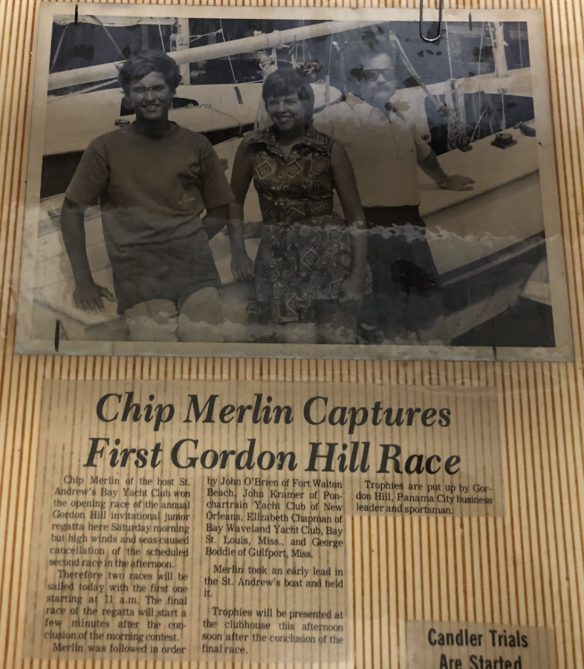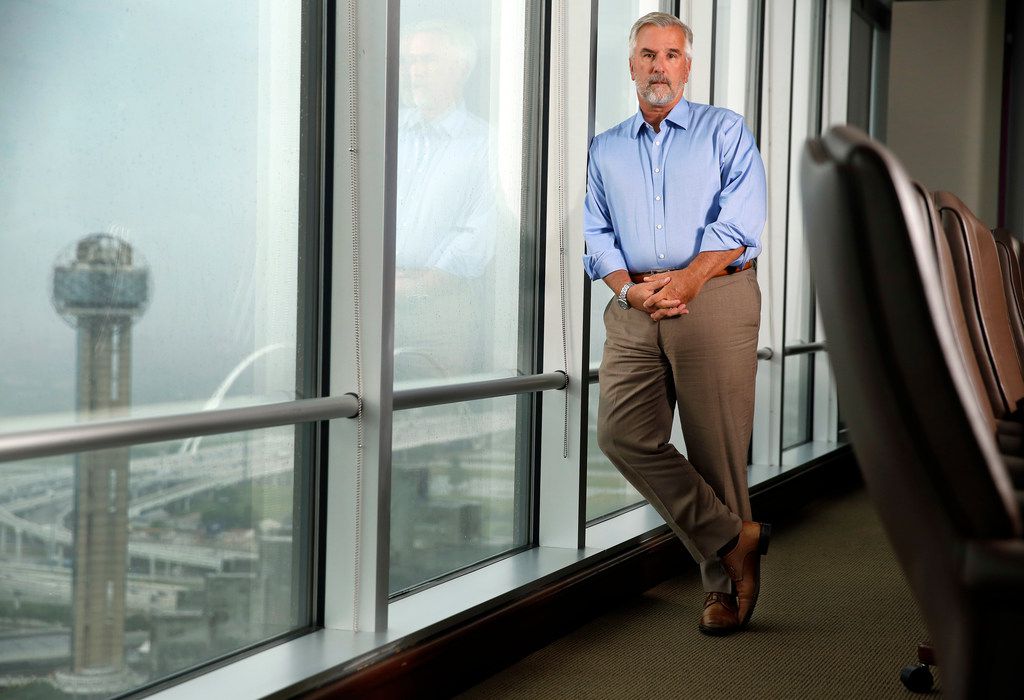
There was no wind at the Sarasota Sailing Squadron yesterday morning. I was hoping for two more sailing races to improve my tied-for-6th place position when the race committee canceled any of those hopes. A couple of minutes later, attorney Jeff Carter texted me a photo from Panama City, Florida, of the St. Andrews Yacht Club ablaze. It burned down early Sunday morning. There is a piece of me that was lost in that fire. I am now left kicking myself for not doing something I tell everybody to do.
I was twelve years old when I first went to the St. Andrews Bay Yacht Club. We were living in Waveland, Mississippi. Traveling to Panama City with my father to crew for Woody Stieffel in the Flying Scot Mid-Winter Championships was a big deal for me. We finished second in that regatta. I was not that good of a crew, but it was exciting to be racing so many boats at my age. I can remember it like yesterday.
Three years later, my Coast Guard officer father was transferred from Los Angeles to Panama City to be the captain of the Coast Guard Cutter Dependable. I was fifteen and came up with this idea of making money by offering sailing lessons at the St. Andrews Bay Yacht Club. I put on a white shirt and jacket and approached the yacht club board with a proposal to split all the sailing lesson fees 50/50. They approved the deal. It was my first business venture.
Every summer day except for weekends when I was racing a sailboat somewhere else or on Mondays when the club was closed, I was at that yacht club for three years. I loved it. When you do something passionately day after day for a number of years, it is hard not to get really good at what you are trying to do. I think that is true in any endeavor we dedicate ourselves.
I also enjoyed getting my friends to race with and against me. Even today, I appreciate the truly talented insurance defense attorneys trying to compete and beat us. I think my appreciation for “the battle” comes from the competitive nature of racing I so enjoy. Sailboat racing and insurance litigation have very similar competitive aspects that one has to embrace to be successful.
Following Hurricane Michael, the yacht club suffered a lot of damage. Eventually, disagreements with the insurance carrier led them to retain our firm to help collect what was owed. As a result, I spent a lot of time at the club and eventually came across some old scrapbooks from the 1970s that contained photographs and old newspaper articles of me, my friends, and family. I wrote Memories of Living in Panama City, Florida, and a Tip About Damaged Photograph Claims about this.
I sometimes wonder what my life would have been like if I had kept racing sailboats at such a serious level versus concentrating my efforts on becoming the attorney I am today. In retrospect, my competitive talents are much better utilized as a policyholder attorney than in such a frivolous but fun pursuit of who can make a sailboat beat another in a race. But God knows I love winning in both endeavors.
So, what is the lesson from the fire loss? Modern technology allows us to scan almost every photograph, video, or document and to make a visual digital reproduction of those physical items that are the memories of our lives—and then upload them to the cloud and other areas of safekeeping. Do it!
I cannot believe that I did not scan and duplicate those scrapbooks, trophies, photographs, and news articles. I should have placed them in an area of safekeeping. While they may be in my memory and those of my friends, all of us would be better off for having followed a step I tell others to do.
I also think I am a better lawyer for this sad loss. It has nothing to do with proving cases and beating the insurance company adjusters and attorneys. Empathy is a core value of our law firm. Anytime I can feel why our clients feel, I am better for it. My heartfelt rhetoric is better. My ability to place myself, however imperfect it may be, in the shoes, mind, and feelings of my client will make me better at doing my job.
I am choked up about this building and its contents burning down because I have some core memories about my life that were lost. What if it were my home and business where I spent my life?
I also say this because the vast amount of memories from a total loss cannot be recorded. Most are recorded only in our minds. The adamant physical objects that are destroyed simply help us recall those unrecorded life events. I think this is why there is so much emotional trauma that occurs to everybody in a community that has been devastated by a catastrophe. It is not just a financial loss, but one of the heart.
This awareness must scare the heck out of the insurance company attorneys. I say this because all they want to argue is policy language to prevent payment and keep their client for the next lawsuit. The best they can do is offer insincere “we are sorry for their loss, but…” excuses for not promptly paying the full amounts owed. If they were truly sincere, they would not take the case because of a conflict of interest.
Their comments are often nothing other than to make them appeal to the jurist or jury so they and their client are not perceived in a negative light. Rarely is it true. It is the same way my competitor in a sailboat race says he was “sorry” to have placed me in a losing tactical position in a race—he is not sorry, but just doing what is needed to win.
The bottom line from this blog is to stop and take action to record those physical things that help keep your memories alive and in a much more positive light than to be lost forever if the surprising and never anticipated catastrophe happens.
I almost wrote so many things to share from my memories in this blog post. That is not what this is about. Instead, I would love to hear from readers about what you have done to take action to safeguard your memories. Please take action.
Thought For The Day
The way to get started is to quit talking and begin doing.
—Walt Disney




